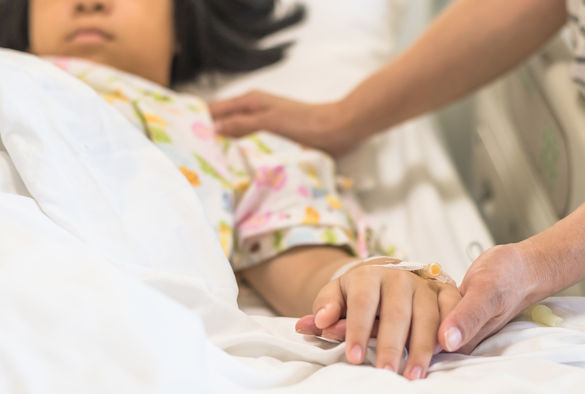
A new study published in the Journal of Pediatric Psychology highlights the need for psychological screening for families/primary caregivers after a child sustains a burn injury.
Paediatric burn injuries are amongst the most traumatic injuries for both children and their parents. Parents are often more emotionally affected by the event than the children themselves and are at risk of developing psychological difficulties.
In the immediate aftermath of a burn event, between 24% and 50% of parents meet clinical criteria for post-traumatic stress syndrome (PTSS) while some parents show symptoms of post-traumatic stress disorder (PTSD) many years after the injury. Symptoms of depression and anxiety are also common both directly after and in the months following a burn event.
Guilt and shame
Some parents often develop feelings of guilt and shame. Guilt is often defined as a negative evaluation of one’s actions. By contrast, shame is a feeling of being inferior or deficient to other people. In the burns literature, no research to date has examined parents’ experience of shame.
Researchers from the University of Liverpool, University of Manchester and Alder Hey Children’s NHS Foundation Trust, led by Dr Laura Hawkins and Dr Luna Centifanti, aimed to examine the association of guilt and shame on parents’ psychological adjustment to their child’s burn injury.
The researchers identified 71 children who had been admitted to the regional children’s burns unit, located at Alder Hey Children’s Hospital, for treatment. These included treatment for burns caused by scalding, contact, flame, friction, chemical and frost. Some children were treated as outpatients while others required hospital admission and skin grafts.
A total of 91 parents/primary caregivers were recruited during the first six weeks following their child’s burn injury and completed questionnaires measuring traumatic stress, depression and anxiety, guilt, shame and self-compassion.
Psychological distress
The analysis found high levels of psychological distress and feelings of guilt in parents whose child had sustained a burn injury. Parents or caregivers who experienced feelings of guilt and shame showed more symptoms of psychological distress, while parents who adopted a compassionate self-attitude (known as “self-compassion”) appeared to cope better following the injury.
Finally, the study found that the way a parent thinks or feels about the injury was a better indicator of how well they cope following the burn than the size or severity of the burn itself.
Dr Hawkins, said: “Our study suggests that health care professionals should pay closer attention to families’ subjective injury experiences. Screening for psychological distress should be offered to all families regardless of the size and severity of the burn injury.”
The full study, entitled ‘Parental Adjustment Following Paediatric Burn Injury: The Role of Guilt, Shame and Self-Compassion’, can be found here.